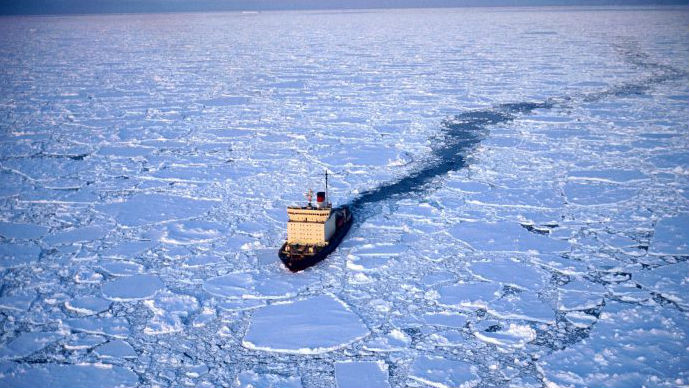MEPC70 Mulls Arctic Heavy Fuel Oil Regulation

As the IMO Marine Environment Protection Committee (MEPC70) meeting came to a close on Friday, environmental groups have shown optimism about a potential ban on heavy fuel oil (HFO) use in the Arctic.
After three papers on HFO, and one on Arctic food security were presented on Friday, several Arctic countries along with IMO Secretary-General Kitack Lim stated that they shared the view that the risks needed further consideration. The IMO will add new work on the regulation of HFO to its program, and set a deadline for completion of this work in order to consider a phase out of Arctic HFO use by 2020.
The Environmental Investigation Agency (EIA), a member of the Clean Arctic Alliance, welcomed the progress made. “By recognizing the threats posed by spills and black carbon emissions from heavy fuel oil, the IMO today took a massive step towards the phase out of this dirty fuel from ships sailing in Arctic waters," said EIA Senior Policy Analyst, Danielle Fest Grabiel. "Getting HFO out of the Arctic will protect human health, coastal communities, and Arctic wildlife like the beluga whale.
“IMO member countries must now capitalize on this momentum by bringing forward concrete proposals in time for the May 2017 MEPC meeting, both to ensure the end of the HFO era, and that the shipping industry starts transitioning towards cleaner fuels as it expands its operations in the Arctic’s fragile and sensitive environment,” said Grabiel.
HFO breaks down extremely slowly in cold Arctic waters. It is currently used by 44 percent of the ships operating in the Arctic, and it accounts for more than 75 percent of the fuel onboard those ships, according to International Council on Clean Transportation figures.
“Yesterday's IMO decision to cut sulfur content in shipping fuels to 0.5 percent by 2020 was also crucial, as it will reduce the volume of HFO used by Arctic shipping,” said Clean Arctic Alliance advisor Dr Sian Prior. “However, the reduction will not eliminate the use of HFO in the Arctic, and a phase out remains the most desirable way forward.
“By ending HFO use in Arctic shipping, the IMO would not only limit the risks of an HFO spill, but also ensure a reduction of harmful C02 and black carbon emissions in the Arctic region,” said Prior.
In September 2016, the U.S. and Canada formally notified the International Maritime Organization that a heavy fuel oil spill in the Arctic could cause long-term damage to the environment.
The nations submitted a statement on the topic to MEPC70 expressing their commitment to work with Arctic partners on "how best to address the risks posed by heavy fuel oil use and black carbon emissions from Arctic shipping." The United States and Canada are active participants in the Arctic Council. The Arctic Council Working Group on the Protection of the Arctic Marine Environment (PAME) and Emergency Prevention, Preparedness and Response Working Group (EPPR), have studied the issues surrounding HFO in Arctic waters.
This follows March 2016 commitments made by U.S. President Obama and Canadian Prime Minister Trudeau to “determine with Arctic partners how best to address the risks posed by heavy fuel oil use and black carbon emissions from Arctic shipping.”
Also in September, the Danish political party Venstre, the Danish Shipowner’s Association, and an Arctic cruise sector operator Hurtigruten called for regulating or banning the use of HFO in the Arctic.
“Arctic waters include some of the world’s most productive ocean ecosystems, providing sustenance to large populations of whales, seals, and walruses and seabirds. Some of the world’s highest volume fisheries rely on the incredibly productive Arctic waters. By ending the use of HFO in Arctic waters the IMO would the preservation of these ecosystems,” said Prior.
Heavy fuel oil is already banned throughout Antarctica, as well as in the national park waters around the Norwegian Arctic archipelago of Svalbard, leaving only a strictly regulated corridor for ships to access the islands. The IMO did not include an Arctic ban in the Polar Code due to take effect in 2017.
